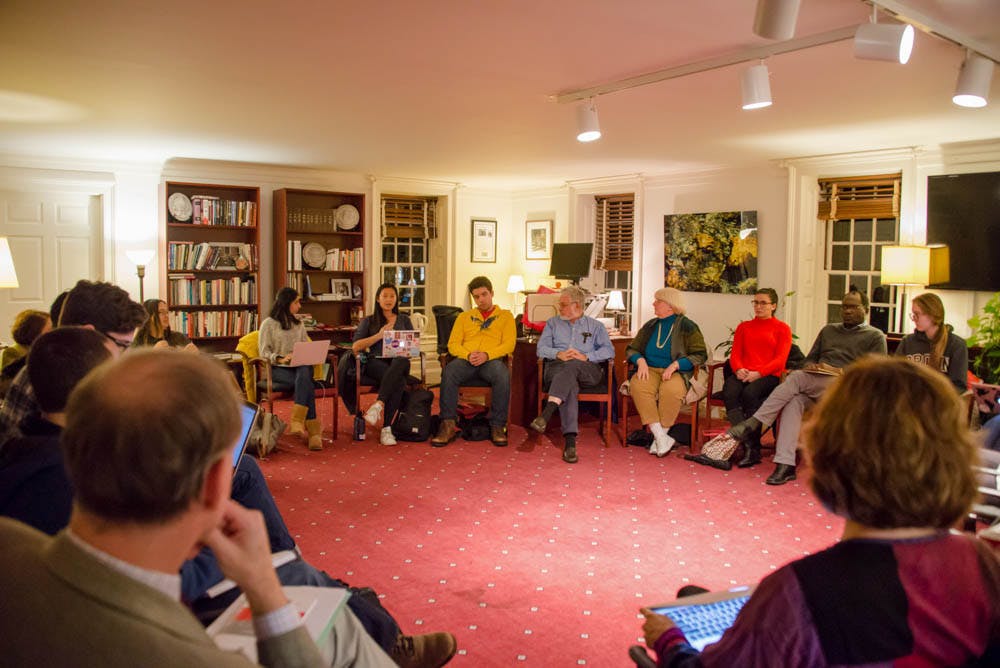In light of recent increases in violations, the University has created a faculty committee to evaluate potential changes to the academic code. On Nov. 13, the committee — which includes advising deans and administrators — hosted a forum to receive student input on the academic code, the set of values to which every member of the Brown community is expected to adhere.
Recently, colleges across the country — not just the University — have caught more and more students cheating and violating academic codes, according to the New York Times.
“The importance of evidence and facts and handing in work that is your own … These are such fundamental values for an (institution) that is based on research and education,” said Dean of the College Maud Mandel.
Primary motivations for reviewing the academic code include its lack of revision in recent years as well as the spike in cases of academic dishonesty, particularly in the field of computer science, Mandel said. These numbers continue to rise despite efforts to detect cheating using specialized technology, including Turnitin and Measures of Software Similarity, which can detect similarities in assignments, said Christopher Dennis, deputy dean of the college. However, it is unclear whether the instances of cheating have increased or whether more students have been caught, Mandel added.
At the forum, computer science courses — especially introductory ones — were the subject of much discussion due to their collaboration policies, which prohibit students from discussing their projects with one another. Some students who attended the forum expressed that these policies made these introductory courses less accessible due to their penalizing nature and could potentially cause many prospective to students drop out. “You start out, you have no idea what you’re doing, but you also have this environment where you are terrified to ask any questions,” said Anina Hitt ’20, a prospective computer science concentrator.
Students also highlighted rampant homework copying across many STEM classes. Online resources such as Slader and Chegg facilitate this practice and create large discrepancies between grades for homework and exams. Students said that professors could avoid this by writing their own homework problems instead of using questions from the textbook.
Mandel also asked the group to define academic integrity. Angie Kim ’20, a prospective computer science and public policy concentrator, said she feels academic integrity helps to “maintain the atmosphere of students being able to learn the material on their own (while also) being able to seek help from others when they need it, with an end goal of each student being able to gain as much out of a class as they can.”
In conjunction with the faculty committee’s review, “there has been another working group that’s been talking about creating a culture of academic integrity with students involved in that,” Mandel said. The group is considering hosting an “academic integrity week” in the spring, involving events that stress the code’s importance to ensure that the University’s culture values academic integrity.
Creating a “system that works for the Brown community with each student committed to the idea of academic integrity” is fundamental, Dennis said.
Mar Weiss ’20, the Undergraduate Council of Students’ academic affairs chair, is the student representative for this project. “The academic code as it is currently … does its job and articulates well Brown’s expectations of its students,” Weiss said. But she hoped that Brown could act more preemptively to understand why students violate the code — sentiments that Dennis echoed as well.





